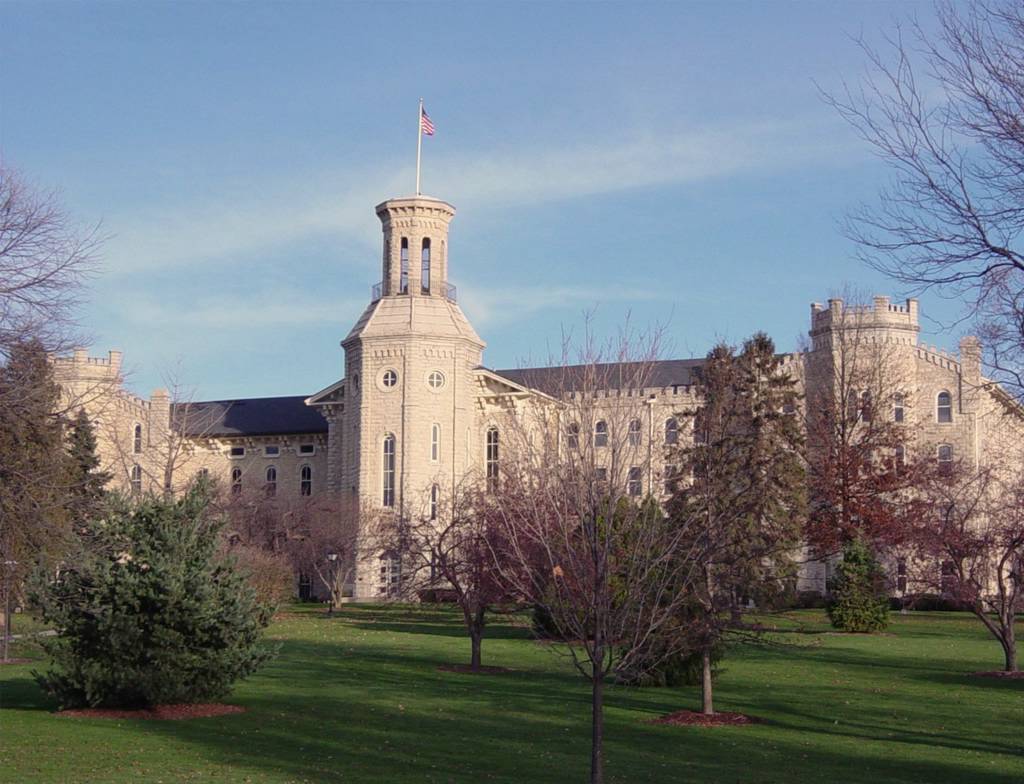
For decades Wheaton College has been known as the “evangelical Harvard.” The alma mater of the Reverend Billy Graham and Speaker of the House Dennis Hastert, it was also an incubator of the evangelical left. In the 1980s, sociologist James Davison Hunter’s Evangelicalism: The Coming Generation warned of the potential secularization of Wheaton and other Christian colleges. While subsequent research by political scientists Corwin Smidt and James Penning showed no evidence of such a shift, warnings of declension continue to echo across the evangelical subculture.
Writing in The City, Matthew Lee Anderson argues that the graduates of evangelical colleges have departed from the views of their elders. In particular, he criticizes their wavering commitment to American patriotism. According to Anderson, “much of this view is reinforced at historically Christian universities, which have become hotbeds of a baptized version of Sixties liberalism that is not as much anti-American as it is anti-national.”
In “The Opening of the Evangelical Mind,” sociologist Alan Wolfe criticizes Wheaton for the opposite reason, arguing its rigid doctrinal boundaries and “lingering anti-Catholicism” damage its intellectual credibility. While genuinely impressed with the school’s faculty, he cites a “loyalty-oath problem” institutionalized in the school’s hiring guidelines. In Wolfe’s view, Wheaton would be better off with a more inclusive orthodoxy.
As Wheaton searches for a new president, the flagship evangelical institution stands at a crossroads. Writing in the SoMA Review, Cornell University philosopher Andrew Chignell (a member of the class of 1996) reports on the concerns many faculty members have about the school.
Originally slated to be the cover story for the November/December 2009 issue of Books & Culture, it was eventually killed by the CEO of Christianity Today International, the largest evangelical magazine publisher in America. Chignell tells the story of the article’s fate at http://whitherwheaton.org/. Fortunately, the SoMA Review agreed to publish the piece, for it provides a revealing look at the inner dynamics of Wheaton College (though oddly enough, Christianity Today’s online NewsFeed now includes a link to the story CTI wouldn’t print).
It is not hard to see why Chignell’s essay would be perceived as controversial. For the most part, these current and former professors sound more like Alan Wolfe than James Davison Hunter. Retired philosopher Arthur Holmes speaks of morale problems and a tendency, at least in the early nineties, to “inquisition science faculty about human origins.” As one of the architects of the school’s vision and the resurgence of Christian philosophy, Holmes is no minor figure on the Wheaton campus. Former political science professor Ashley Woodiwiss (now at Erskine College) laments the fact that “at a liberal arts college tenured faculty are unwilling and/or uneasy to speak on the record.” Quoting an unnamed development officer at the college, historian Timothy Larsen suggests that Wheaton’s conservatism may cost it more donations than a more moderate approach.
Affirming a broad vision of evangelicalism, Holmes wants a president “who understands and respects the diversity within the evangelical movement.” Geologist Jeffrey Greenberg hopes for a “theologically orthodox person” who is also “relational,” reflecting a faculty committed to an irenic version of evangelical orthodoxy.
The choice of a new president will have consequences for the leadership of American evangelicalism. According to Michael Lindsay’s study of evangelical elites, Wheaton College was the second most popular alma mater in his sample of 360 leaders in politics, entertainment, business, and academia. The most popular was a school in Cambridge, Massachusetts, suggesting that future evangelical elites could simply bypass the evangelical Harvard for the real McCoy.












